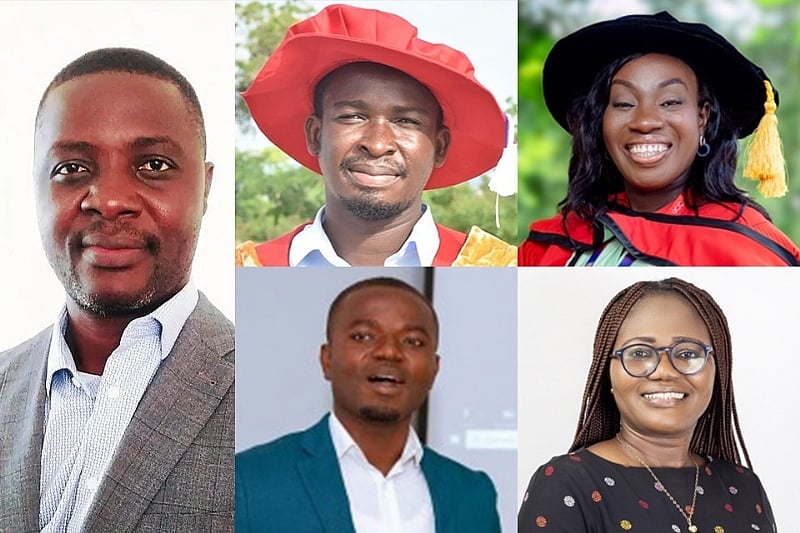SignUnity: A Continental Collaboration in Sign Language Interpreter VET Education, a groundbreaking project spearheaded by Dr. Richard Osei Agjei, Dr. Bright Ankudze, Dr. Gifty Nana Yaa Rockson, Dr. Daniel Fobi, and Prof. Mavis Amo-Mensah of the University of Education, Winneba (UEW), has been awarded an Erasmus+ Lump Sum Grant. This initiative marks a significant stride towards addressing the global scarcity of professionally trained sign language interpreters, a critical challenge that impedes effective communication and inclusion for deaf and hard-of-hearing individuals. The project’s core objective is to revolutionize interpreter training across Africa and Europe by establishing a standardized vocational education and training (VET) curriculum, accompanied by an interactive digital manual focusing on ethical practices within the interpreting profession. This comprehensive approach seeks to elevate the quality of interpreter education and ensure its accessibility, particularly in Sub-Saharan Africa where such programs are often limited or non-existent.
The SignUnity project recognizes the crucial role of sign language interpreters as bridges of communication and facilitators of social inclusion. The current global shortage of qualified interpreters creates significant barriers for deaf and hard-of-hearing individuals, restricting their access to education, employment, healthcare, legal proceedings, and other essential services. This project directly confronts this challenge by investing in the development of a robust and accessible training program that will equip future interpreters with the necessary skills and ethical framework to effectively serve the deaf community. By fostering a new generation of skilled interpreters, the project aims to break down communication barriers and empower deaf and hard-of-hearing individuals to fully participate in all aspects of social and economic life.
The project’s innovative approach lies in its continental collaboration, bringing together partners from Ghana, Ethiopia, Kenya, and several European institutions. This multi-stakeholder consortium comprises universities, vocational training providers, NGOs, and deaf associations, ensuring a diverse range of perspectives and expertise are incorporated into the curriculum development process. This collaborative approach is crucial to ensuring the curriculum’s relevance and responsiveness to the specific needs and contexts of different regions and communities. By engaging stakeholders from both Africa and Europe, the project aims to develop a curriculum that adheres to international best practices while remaining culturally sensitive and adaptable to local contexts.
A key component of the SignUnity project is the development of an interactive digital manual on ethics for sign language interpreters. This manual will serve as a vital resource for both aspiring and practicing interpreters, guiding them in navigating the ethical complexities of the profession. It will address crucial issues such as confidentiality, impartiality, cultural sensitivity, and professional boundaries, ensuring that interpreters uphold the highest ethical standards in their practice. The digital format of the manual enhances its accessibility and allows for updates and revisions to reflect evolving ethical considerations within the interpreting field.
Beyond curriculum development, the SignUnity project encompasses a range of capacity-building activities, including workshops, pilot training programs, mentoring initiatives, and exchange programs between African and European partners. These activities are designed to strengthen the infrastructure for interpreter training in participating countries and foster long-term sustainability. Workshops will provide opportunities for knowledge sharing and skills development among trainers and educators, while pilot training programs will allow for the practical application of the newly developed curriculum. Mentoring programs will provide ongoing support and guidance to newly trained interpreters, ensuring their continued professional development. Exchange programs will facilitate cross-cultural learning and collaboration between African and European institutions, enriching the training experience and fostering lasting partnerships.
The SignUnity project represents a significant investment in the future of sign language interpreting and holds immense promise for promoting inclusivity and accessibility for deaf and hard-of-hearing communities across Africa and Europe. By developing a standardized VET curriculum, creating an interactive ethics manual, and implementing comprehensive capacity-building activities, the project aims to create a sustainable pipeline of skilled and ethical interpreters. This, in turn, will empower deaf and hard-of-hearing individuals to access essential services, participate fully in society, and exercise their fundamental human rights. The project’s collaborative and multi-stakeholder approach ensures that the curriculum and training programs are contextually relevant and meet the specific needs of diverse communities. Ultimately, the SignUnity project contributes significantly towards achieving a more equitable and inclusive society where deaf and hard-of-hearing individuals are empowered to communicate effectively and participate fully in all aspects of life.














